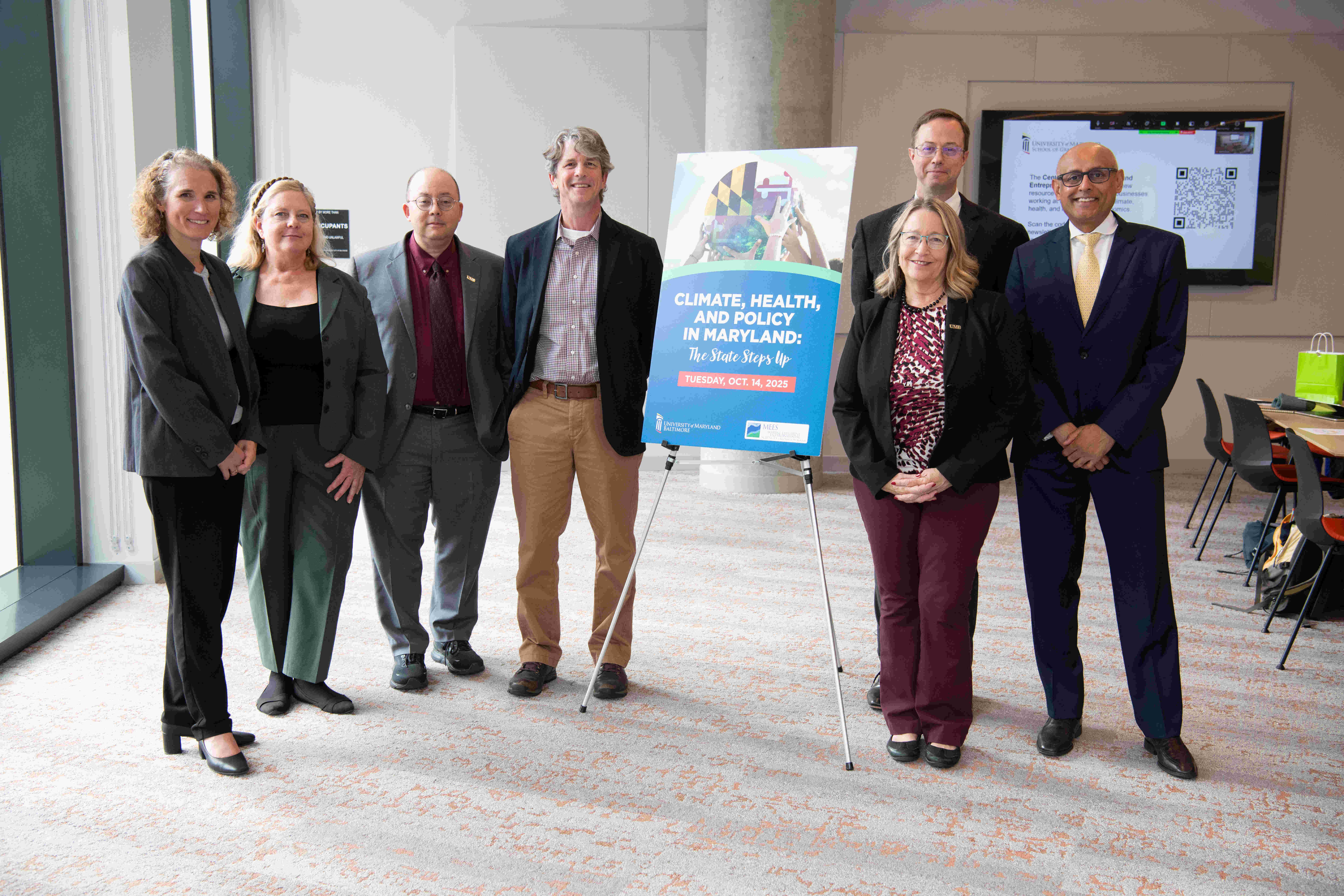Shedding Light on Climate Change’s Impact on Health, How Maryland Can Help

Each year, more than 700 people die from extreme heat in the United States, according to the Centers for Disease Control and Prevention. Climate change is making these types of death more common.
A 2025 study from the Yale School of Public Health highlighted those increases, finding that deaths linked to heat exposure surged more than 50% over the past two decades.
And Baltimore is no exception.
On Aug. 2, 2024, Baltimore Department of Public Works employee Ronald Silver II died of hyperthermia after overheating while working a city trash route. His death was investigated by the Maryland Occupational Safety and Health Administration, and his employer was found to be at fault.
“He was only 36 years old. He was a father of three, and he had very classic symptoms of heat illness leading up to the heat stroke. There was warning that could have been acted on,” said Marianne D. Cloeren, MD, MPH, associate professor at the University of Maryland School of Medicine (UMSOM) last month at the “Climate, Health, and Policy in Maryland: The State Steps Up” symposium.
The event at the University of Maryland, Baltimore (UMB) brought together leaders from across Maryland — including those in higher education, medicine, and community organizations — for conversations about the impact of climate change on health and what the state is doing to address the issue.
Improving health outcomes caused by environmental changes will take a collaborative approach, something UMB is systemically building into its campus values — through interdisciplinary curricula, advocacy, and hands-on work within the community.
Addressing Climate Change Through Collaboration
Faculty from the University of Maryland schools of Medicine, Nursing, and Law, along with the University of Maryland, College Park (UMCP) Marine-Estuarine Environmental Sciences Graduate Program, have collaborated over the past three years to educate students and build community partnerships that tackle the problems of a changing climate.